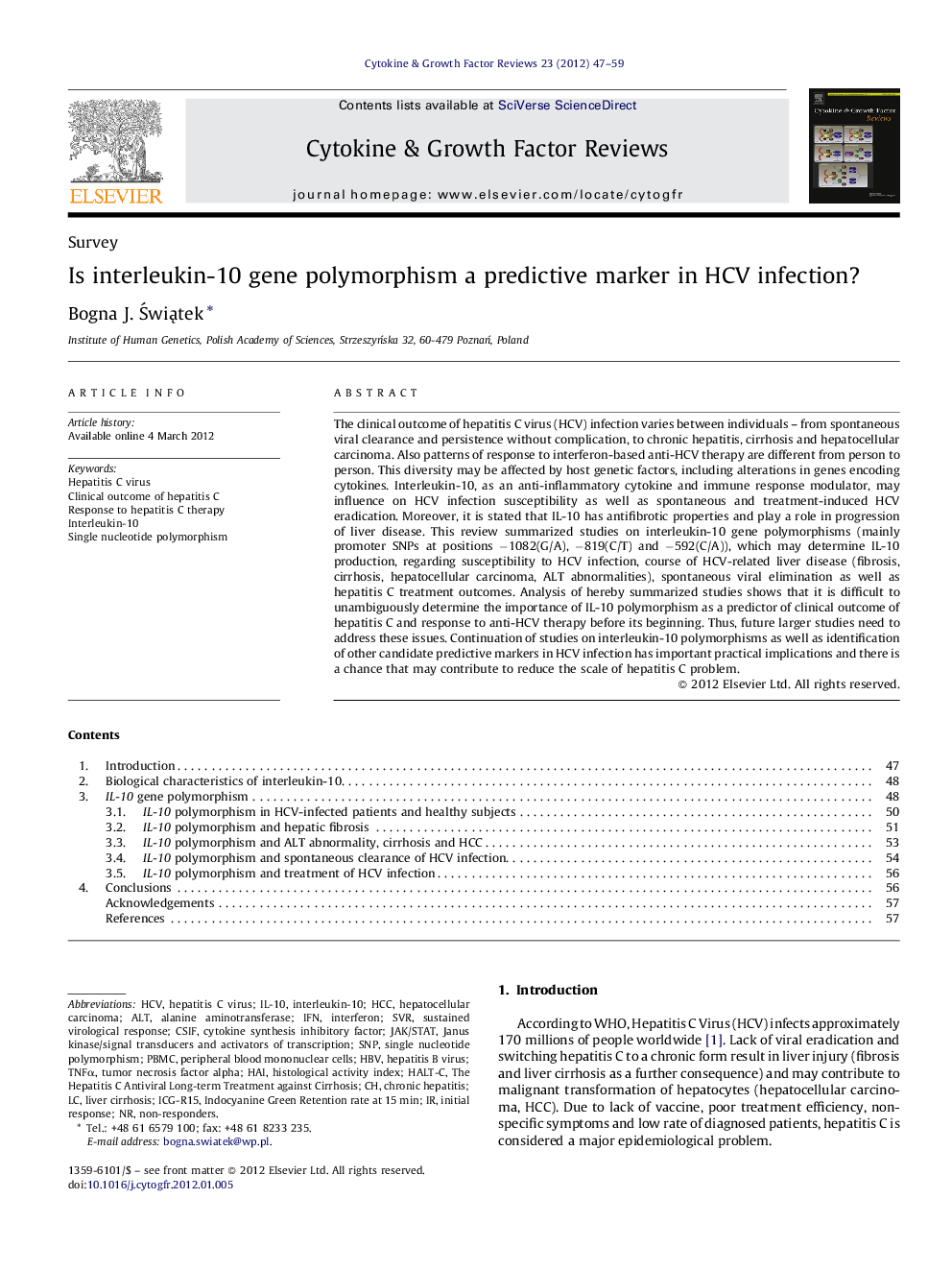| Article ID | Journal | Published Year | Pages | File Type |
|---|---|---|---|---|
| 2170599 | Cytokine & Growth Factor Reviews | 2012 | 13 Pages |
The clinical outcome of hepatitis C virus (HCV) infection varies between individuals – from spontaneous viral clearance and persistence without complication, to chronic hepatitis, cirrhosis and hepatocellular carcinoma. Also patterns of response to interferon-based anti-HCV therapy are different from person to person. This diversity may be affected by host genetic factors, including alterations in genes encoding cytokines. Interleukin-10, as an anti-inflammatory cytokine and immune response modulator, may influence on HCV infection susceptibility as well as spontaneous and treatment-induced HCV eradication. Moreover, it is stated that IL-10 has antifibrotic properties and play a role in progression of liver disease. This review summarized studies on interleukin-10 gene polymorphisms (mainly promoter SNPs at positions −1082(G/A), −819(C/T) and −592(C/A)), which may determine IL-10 production, regarding susceptibility to HCV infection, course of HCV-related liver disease (fibrosis, cirrhosis, hepatocellular carcinoma, ALT abnormalities), spontaneous viral elimination as well as hepatitis C treatment outcomes. Analysis of hereby summarized studies shows that it is difficult to unambiguously determine the importance of IL-10 polymorphism as a predictor of clinical outcome of hepatitis C and response to anti-HCV therapy before its beginning. Thus, future larger studies need to address these issues. Continuation of studies on interleukin-10 polymorphisms as well as identification of other candidate predictive markers in HCV infection has important practical implications and there is a chance that may contribute to reduce the scale of hepatitis C problem.
